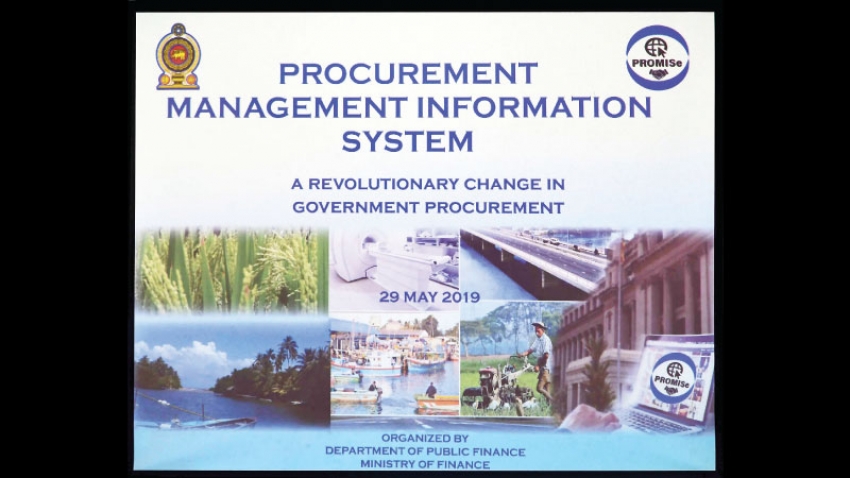The Minister of Finance had received the approval of the Cabinet of Ministers to introduce an electronic Government Procurement System, which was launched yesterday, to address the existing shortcomings and to facilitate fast tracking procurement decisions. Speaking at the event, Finance Minister Mangala Samaraweera said, it is an important benchmark in realizing more transparency and efficiency in public services.
Sri Lanka received the South Asian Innovative Procurement Award at the fifth South Asian Public Procurement Conference in New Delhi last year. “Today in advancing our efforts to transform the traditional manual procurement process into a modern system, the Finance Ministry places Sri Lanka on par with very advanced nations that include Singapore, European Union and Canada. Sri Lanka, being a States Party to the United Nations Convention against Corruption, has the international obligations to improve our public procurement processes.”
Article 9 of the Corruption Convention refers to public procurement and management of public finances, whereby the State Parties are requested to take the necessary steps to establish appropriate systems of procurement, based on transparency, competition and objective criteria in decision-making, that are effective in preventing corruption. The minister said, “We, as a country, annually spend around a quarter of our government expenditure on public procurement, which amounts to nearly 15% of the GDP. Considering the magnitude of that total annual expenditure, it needs closer attention and scrutiny from all the stakeholders in the public management systems. Also procurement plays a strategic function.”
Corruption, misappropriation and mismanagement of public assets must be tackled with a policy of zero tolerance, which from my point of view, remain difficult in our part of the world because of systemic weaknesses. In Sri Lanka, the decisions of implementing many important projects are lagging behind because of the manual system that links to the decades old complicated governance mechanisms. Now in the first quarter of the 21st Century, Sri Lanka as a modern nation, must look forward to utilize new technologies to make our decisions faster, transparent and more accountable,” Samaraweera added.




















